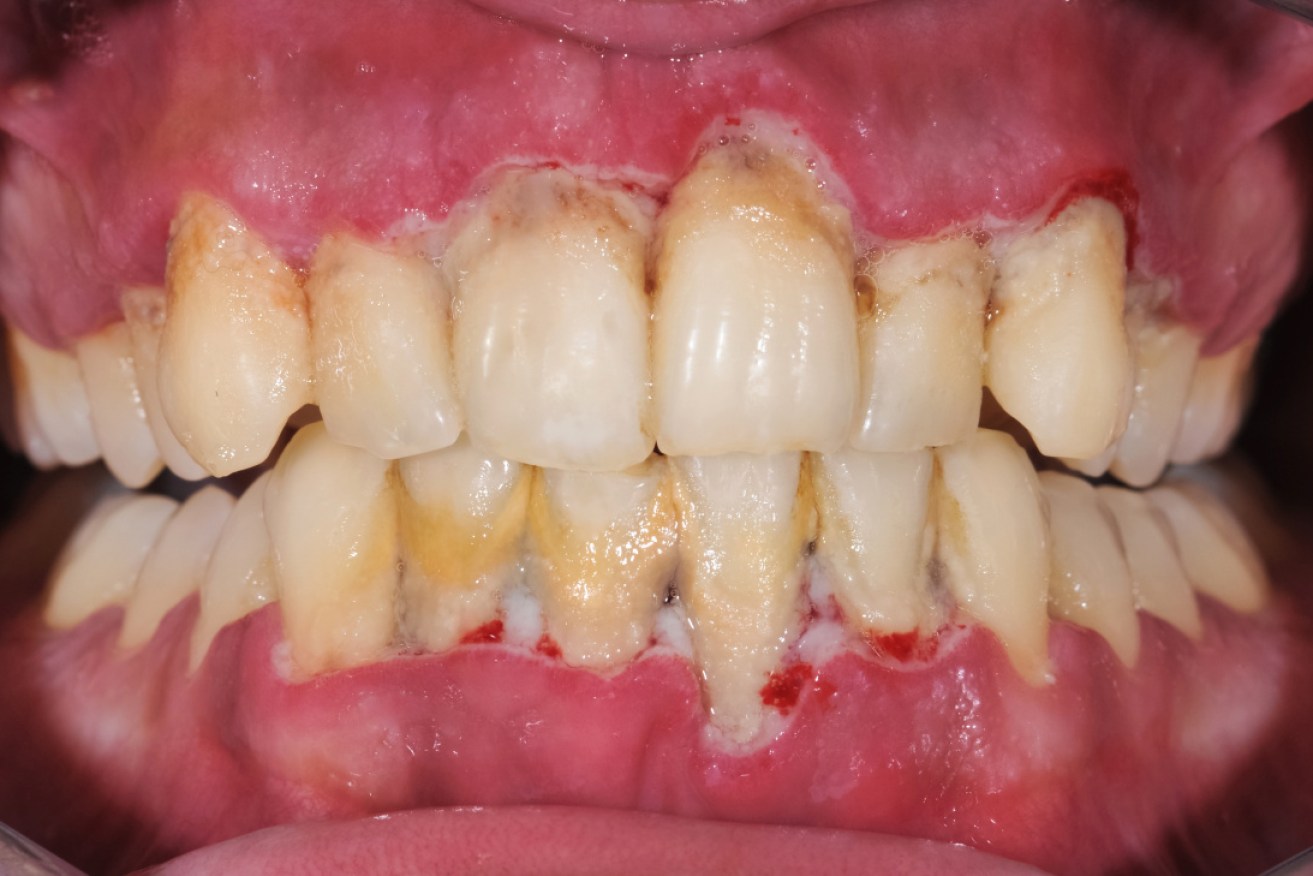Gum disease increases the risk of mental illness by nearly 40 per cent


Gum disease isn't pretty. It makes your brain and heart ugly too. Photo: Getty
Dear end-of-year party goers and COVID social dare devils: Please remember to brush your teeth in between your sessions of hilarity.
A UK study, the first of its kind, has quantified the increased risk of people with a medical history of gum disease developing serious illnesses.
The researchers, from the University of Birmingham, found that in patients with a recorded history of periodontal disease at the start of the study:
- The increased risk of developing mental health problems such as anxiety or depression was 37 per cent
- The risk of developing an autoimmune disease – such as arthritis, Type 1 diabetes or psoriasis – increased by 33 per cent
- The risk of developing cardiovascular disease (heart failure, stroke, vascular dementia) increased by 18 per cent
- The risk of developing Type 2 diabetes was up by 26 per cent.
How the study worked
The researchers identified 64,379 patients with a medical history (as recorded by their GP) of periodontal disease, including gingivitis and periodontitis (the bone-eating condition that causes teeth to become loose and fall out).
Of these, 60,995 had gingivitis and 3384 had periodontitis.
These patients’ records were compared to those of 251,161 patients who had no record of periodontal disease.
Across both groups, the average age was 44 years and 43 per cent were male.
Body Mass Index (BMI), ethnicity and deprivation levels were similar across the groups, while 30 per cent of the people were smokers.
Over an average follow-up of about three years, the researchers essentially tracked how many of the patients with and without periodontal disease went on to develop illness.
Those patients with a recorded history of periodontal disease at the start of the study were more likely to go on and be diagnosed with one of these additional conditions over an average of three years, compared to those in the cohort without periodontal disease at the beginning of the research.
Co-first author, Dr Joht Singh Chandan, of the University of Birmingham’s Institute of Applied Health Research, said: “Poor oral health is extremely common, both here in the UK and globally. When oral ill-health progresses, it can lead to a substantially reduced quality of life.
“However, until now, not much has been known about the association of poor oral health and many chronic diseases, particularly mental ill-health.”
Co-senior author, Professor Krish Nirantharakumar, said there was a need for effective communication between dental and other healthcare professionals “to ensure patients obtain an effective treatment plan targeting both oral and wider health to improve their existing overall health and reduce the risk of future illness”.








